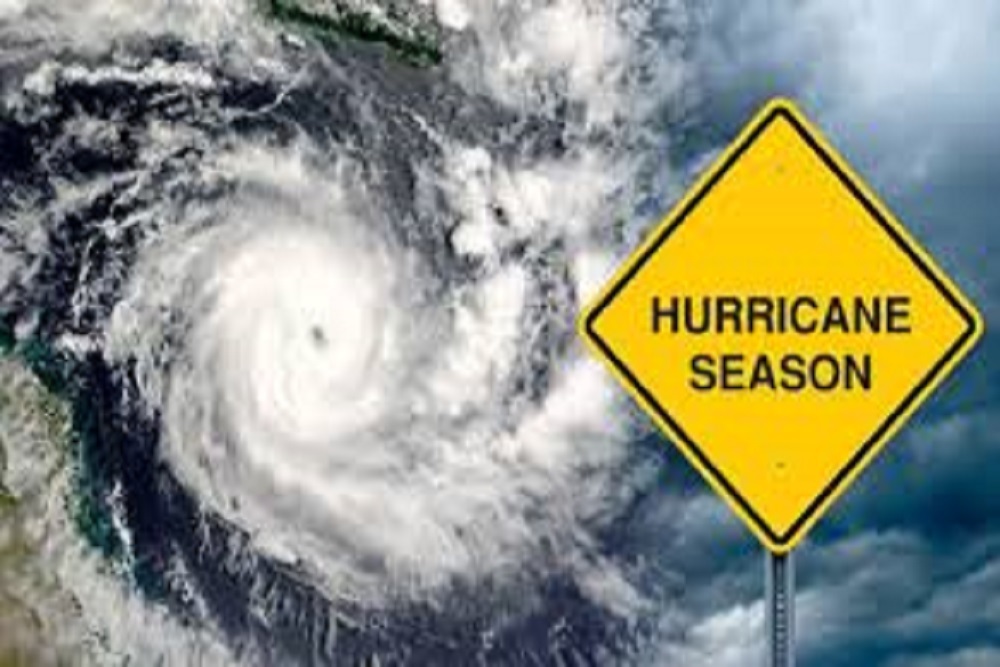American Insurance Association issued the following announcement on June 6.
The 2020 Atlantic Hurricane Season is off and running with the third named storm already churning in the Gulf of Mexico. Coastal residents should consider how the on-going COVID-19 pandemic will impact their evacuation and preparedness plans as Tropical Storm Cristobal is expected to approach the U.S. Gulf Coast early next week, according to the American Property Casualty Insurance Association (APCIA).
“Preparing for hurricane season in the midst of a pandemic is an unprecedented situation,” said David A. Sampson, president and CEO of APCIA. “We are pleased to be partnering with Craig Fugate to offer additional resources and information on how to prepare for, and recover from, natural catastrophes during the current crisis.”
Fugate is widely regarded as one of the world’s leading experts in emergency management planning and response. As a bipartisan leader, Fugate served as Administrator of the Federal Emergency Management Agency from 2009 to 2017 where he led the nation’s response to more than 500 presidentially declared disasters and emergencies, including Hurricane Sandy. Prior to that, Fugate served as the Director of the Florida Division of Emergency Management from 2001 to 2009 under former Florida Governor Jeb Bush. In that role, he directed the state’s recovery efforts after numerous hurricanes, including during the devastating 2004-2005 hurricane seasons.
“COVID-19 and social distancing change the way communities look at evacuation and sheltering,” said Fugate. “Coastal residents who do not live in mandatory evacuation zones will have new factors to weigh when considering if they can safely ride out a storm at home. This puts a renewed emphasis on making our homes stronger and more resilient against storms this season. Residents should always follow the directions of state and local officials if you are told to evacuate, but additional planning will be needed in identifying safe destinations.”
In addition to hardening homes, residents should ensure they are financially prepared by conducting an insurance check-up, making a home inventory, and evaluating their need for flood insurance.
“With Tropical Storm Cristobal already on the radar and an active hurricane season ahead, residents should call their insurer to review and update their insurance policy,” said Sampson. “Talk to your insurer about your flood risk. Let your insurer know if you are going through extraordinary life circumstances.”
Insurers are committed to serving their customers. With extensive emergency continuity plans and remote solutions in place due to COVID-19, insurers are ready to process claims expeditiously. Through the use of innovative technology, like drones, specialized smartphone apps, 3-D modeling, real-time video collaboration, and links to simple, one-touch claims via text or email, insurers have gone virtual with the claims process to serve policyholders safely, quickly, and efficiently if disaster strikes.
“The growth of virtual claims adjusting technology is not only keeping customers and employees safe, but also helping insurers pay claims faster,” added Sampson.
APCIA and Fugate offer the following tips to prepare for hurricane season.
Be Financially Prepared
· Call your insurer to review your policy and understand how it works. If you have recently completed a renovation or remodel, let your insurer know.
· Make a home inventory using your smartphone to take photos and videos of your belongings, like furniture, electronics, and appliances. Do not forget the small stuff like your clothes and dishes or any high value items like artwork or jewelry. Store your home inventory in safe place, like the cloud, where it can be easily accessed.
· Evaluate your need for flood insurance. A standard homeowners policy does not cover flood damage. Flood coverage must be purchased as a separate policy through the National Flood Insurance Program or the private market. New flood policies typically take 30 days before they go into effect.
Make Your Home Stronger
· Inspect your roof and make repairs to loose or damaged shingles.
· Trim branches and shrubs away from the roof and house.
· Clear your yard of debris that could become wind-borne “missiles” and damage property.
· Secure loose gutters and seal gaps and crackers around windows and doors to prevent water intrusion.
· If investing in hurricane shutters is not feasible, measure windows and get plywood cut ahead of time and have the necessary tools to install them.
· New research from the Insurance Institute for Business and Home Safety has shown that a strong garage door can be crucial to preventing damage to your home during high winds. Check to see if your garage door is wind-rated. If not, consider purchasing a new garage door or be prepared to brace your existing garage door if a storm approaches.
Know Your Evacuation Zone and Make a Plan
· Know if you live in a mandatory evacuation zone and plan for where you will evacuate. Consider evacuating tens of miles away instead of hundreds of miles away, if it is safe to do so. This reduces the concern of spreading COVID-19 from state to state or region to region. Additionally, staying closer to home allows residents to get back quickly and take immediate steps to reduce further damage or loss.
· Whether you are planning to evacuate to a shelter, a hotel or with friends and family, make sure you have face masks for each member of your family.
· If you do not live in a mandatory evacuation zone, consider if you can safely ride out a storm at your home to reduce the spread of COVID-19. This may vary depending on the intensity of a storm.
· Do not forget to include your pets in your evacuation plan. Never leave pets behind.
Get Your Hurricane Supply Kit Ready
· Have enough food, water, and any needed medications for each member of your family, including your pets, for at least seven days.
· Include face masks, hand sanitizer, and cleaning supplies in your supply kit.
· Be prepared for power restoration to take longer than normal.
Original source can be found here.










 Alerts Sign-up
Alerts Sign-up